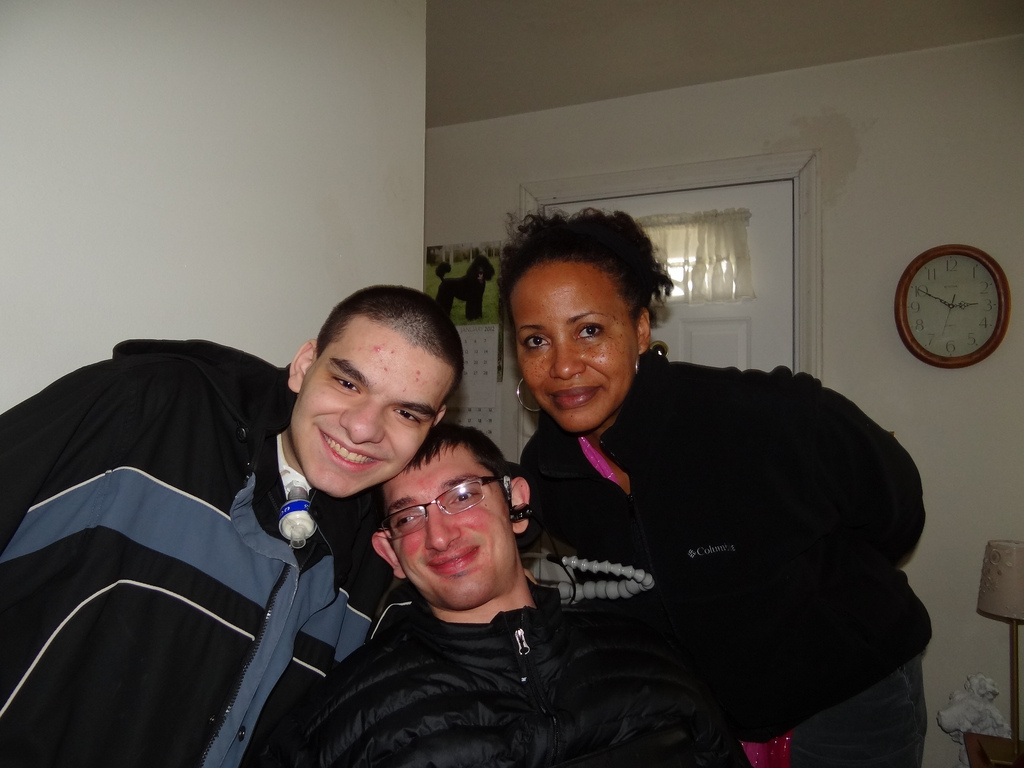How To Care For Someone In Their Own Home: A Complete Guide
“No one is useless in this world who lightens the burdens of another.” – Charles Dickens
Caring for someone in their own home can be challenging and intimidating. As a caregiver, you are operating in a field that you can’t fully control. Hospitals and nursing homes have the ability to limit the number of external variables that can go on while a patient is visiting. Yet, home care is a completely different animal. Caregivers have to think on their feet, adapt to their client and family and feel (or at least act) comfortable in a situation they have never seen before. In a sense, there is no “home court” advantage for you.
The below article is meant to be a guide. It covers the basics of what care-giving is and goes deeper into creating effective attitudes.
Home health care is NOT easy, but is extremely rewarding. My goal is to help you feel as comfortable with it as you can and help you learn insights that will make you a more effective caregiver.
What Is A Caregiver?
A caregiver is a professional that takes care of the needs of others. These needs are physical and emotional. A caregiver supports Activities of Daily Living (ADLs) including bathing, eating, brushing one’s teeth, using the rest room, etc. When an individual is no longer able to take care of oneself a caregiver helps to fill the gap and allows this individual to live their life in a way that gives them fulfillment.
What Does A Caregiver Do?
Imagine for a moment that you were paralyzed from the neck down (quadriplegia). Pretend it was morning and you had to get out of bed and get ready for work. What would you need help doing? You would probably need help transferring from your bed to a chair that could get wet in the shower. You would need help with the actual cleansing of your skin in the shower, drying off, brushing your teeth, getting dressed and many other activities. These are all things that a caregiver may be required to do. The list below includes many of the activities you may do but is by no means exhaustive.
- Bathing
- Taking vital signs
- Wound care
- Dressing
- Brushing teeth
- Brushing hair
- Transferring
- Administering medication
- Range of motion
- Cleaning tracheotomies, catheters, urinals
- Administering bowel programs
- Laundry
- Meal prep
- Vacuuming
- Playing games with client
- Running errands with client
- Documenting
- Reporting
- Providing companionship
- Supporting the family
- And more…
What Does A Caregiver Not Do?
A caregiver is not required to diagnose or treat physical or emotional illnesses. Physicians, nurses, physical therapists, occupational therapists and other medical professionals invest years of education learning the intricacies of disease processes and how to treat them. A caregiver works directly with a client or patient and follows the plan of care established by the medical professional. The caregiver has the right and should approach the doctor or nurse with any observations they may see regarding the client but they do not have the power to change the plan of care.
What Type Of Attitude Should A Caregiver Have?
Attitude is one of the most important components of care-giving. Imagine again that you were paralyzed from the neck down. Before your injury you were able to take care of yourself. You were able to direct your actions in any way that you desired in the privacy of your own home. Now, you need to rely on the help of caregivers, nurses, doctors, family members and many other people. Your house may seem more like a hotel with people coming and going constantly. Your level of privacy would be diminished greatly. How would you feel if on top of all of this you had to rely on a caregiver that was rude, unfriendly and gave you the impression that they didn’t want to be there? I imagine that you wouldn’t care much about that caregiver.
A positive attitude can help your client tremendously. It can lighten the burden that they carry. It can help them get through the loss of a loved one. It can help them see their injury as a blessing instead of a curse. Help your clients do this It will impact them greatly.
“A joyful heart is good medicine, but a crushed spirit dries up the bones.” -Proverbs 17:22
How do you have a good attitude when you don’t feel like having one?
Say for instance that you had a crummy day yesterday. Your boyfriend or girlfriend broke up with you. Your car broke down. And you flunked a test that you put countless hours of work into. Life just isn’t going your way. How do you still maintain a positive attitude for your clients? Below are several tools for your tool belt:
1. Smile
Smiling, even if you don’t feel like smiling, will begin to change brain wave patterns and make you feel happier. It is almost impossible to stay depressed with a smile on your face.
2. Count Your Blessings
The reason you have a bad attitude is because you are thinking about the problems in your life. Everyone has problems, not just you. And yours’ are no larger than anyone else’s problems. Take a moment (with a smile on your face) to think about the blessings you have in your life. Focus on the positive aspects of life and your attitude will radiate positivity.
3. Sit or Stand Up Straighter
Adjust your posture so you are sitting up or standing straighter. Having a straight spine will immediately brighten your mood.
4. Breathe Deeper
Try this for a moment. While you are sitting in your chair (or standing up) take a deep breath in. Count all the way to ten. On the out breath count to ten again. Keep doing this. The increase in oxygen will greatly improve your brain functioning and elevate your mood.
5. Relax
Take a moment to sit down in a chair. Close your eyes. Breath deeper and focus on relaxing each part of your body starting with your head… face… neck… shoulders… arms… etc. Relax everything, even the tips of your toes. Relaxation will help give you a new perspective on life and help you realize that whatever you are upset about isn’t worth getting so upset about.
6. Get Rid Of The “I’m Entitled” Mentality
If you try all the above techniques (or you simply refuse to try them) you are probably suffering from the “I’m Entitled” mentality. You think that you are entitled to a life that goes exactly how you plan and happen in exactly the way you want it to happen. Life doesn’t work like this. Are you entitled to a car that never breaks down or a child that never gets sick or a boss that is always nice to you? No. The reality may be the opposite. Stop holding on to things you think you are entitled to, enjoy the life that is in front of you now and your attitude will become much better.
The Caregiver’s “Tool kit”
The term “tool kit” is a metaphor for having certain skills. For example, knowing how to transfer someone using a Hoyer lift is a tool. Knowing how to change an occupied bed is a tool. Knowing how to build rapport with a new client is a tool. As you go through this training and work with an assortment of clients you will increase the number of tools in your tool kit. The more tools you have and the more you know how to use these tools the better caregiver you will be. Take the time to continue your education and sharpen your tools and you will grow in your role as a professional caregiver.
Importance of Self Care
Caregiving is often a demanding job and requires someone that is physically and emotionally healthy. In order to continue to provide a high quality of care for your clients you need to take care of yourself. Below are a few key areas to pay particularly close attention to:
1. Getting Proper Sleep
Your body needs between 7-8 hours of sleep every night. If it continues to get fewer than this amount of sleep than your health and consequently your caregiving will suffer. Try to create a schedule that will allow yourself to get this amount of sleep. It is also important to note that going to bed early is important. The adrenal glands “reset” between the hours of 11 pm and 2 am. If you are awake during these hours than they don’t get the opportunity to rebalance and your will feel greater fatigue during the day. Try to be in bed before 11 pm if possible.
2. Nutrition
Good nutritional practices are critical for you to stay healthy. Understand that your body needs certain nutrients to function properly. If you are not getting these nutrients than many systems of your body will be effected. Your mood will be erratic. You may be more prone to back or neck pain. You could even end up in the hospital because of a particular deficiency. Take care of yourself by eating properly and the care that you offer your clients will be much better.
3. Exercise
Most people do not like to exercise. However, your body was made to move. The adage, “If you don’t use it, you lose it” is especially important here. Find an activity that you enjoy. Maybe this is hiking or tennis or swimming. Engage in this activity at least 30 minutes five days a week and your health will dramatically improve.
4. Good Hygiene
Take pride in how you look and the quality of your hygiene. The amount of care you give yourself is a direct representation of how much you value yourself. Comb your hair, brush and floss your teeth, take daily showers, etc. This not only reflects positively on the agency but also adds to your credibility and professionalism as a caregiver.




